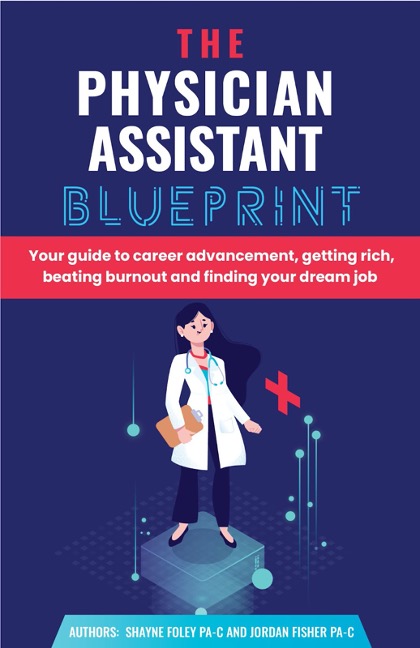NEGOTIATING FOR MORE: How to recognize and build leverage

NOT JUST SWEET-TALKING
Fine, I’m just going to come right out and say it: Don’t let any talking heads convince you that the only thing standing between you and making more money is a lack of negotiation ability. The word negotiation is just such a buzzword these days, and we get questions about it all the time during our presentations. We at The PA Blueprint believe that you are much more likely to command increased compensation by recognizing or creating leverage that shows are an excellent Physician Assistant.
Negotiation is a game of leverage, and as a new graduate, you have very little. Employers know that you will need a lot of training to get up to speed, meaning that your productivity will be minimal within the first year. This will inevitably lead to you not being as profitable for the organization to start, so why would they agree to pay you more to lose them money? Again, you just don’t have any data that you are worth investing more money into. But, if you believe everything you read on the internet, you might be convinced that you’re just a rehearsed script or the right questions asked from maximizing your compensation.
We strongly encourage you as new graduates to try and negotiate for increased compensation, and I will proudly say that I did so successfully with my first job offer. With that said, I didn’t expect that they would give me anything more than the initial offer, as my leverage to command more was relatively weak. I did recognize that the organization that I was interviewing with was offering more than most, and was willing to hire new grads, so that informed me that they were a “motivated employer”, aka somewhat desperate to fill the role. That, my friends, told me that I had leverage.
HOW TO RECOGNIZE LEVERAGE
Although I could recognize the leverage that I had, it is not always easy to see. Here are 4 common observations that may be clues to leverage:
- The employer is very willing to hire new grads.
- The compensation package is above average, including excellent benefits.
- There are offers for relocation assistance and/or sign-on bonus.
- The employer is hiring for multiple positions.
As we discuss in The PA Blueprint book, you may have success with asking for more, or you may fail. Either way, it was a good experience for you to try, so applaud yourself for doing so. Either outcome, you then need to focus on becoming a proficient clinician with a willingness to go beyond your duties. Within your first year, you should be able to get recognized as an invaluable clinician within the organization, and once you establish that, you have some serious leverage when you go back to the negotiating table.
SUPPORTING DATA
After the first year of your job, ensure that you get a review with your office manager and/or medical director. Come to this meeting prepared to ask for a raise, and hope that your positive review will make them more likely to grant it. Here’s what you should bring to that meeting to demonstrate your high performance:
- Patient satisfaction scores.
- EMR statistics.
- Billing statistics.
- Peer performance reviews (create your own survey if you have to).
- Above and Beyond list.
With a year of excellent experience under your belt, NOW you have the proper leverage to negotiate a raise. The objective information listed above will more than support your argument for a raise. You won’t need to rely on your sweet-talking or hard-bargaining alone. After all, most of us think we deserve more compensation, but it’s those that can prove it that get it.
For a much more in-depth look at compensation, including negotiating for a raise, check out The PA Blueprint Ebook. That will teach you best practices for these topics. In addition to that, read Jordan’s blog post about how he recently got a big raise.
DISCLAIMERS: 1) The views expressed here are our own and do not necessarily represent the views of our employers. 2) We don’t know what we don’t know. Feel free to message us if you don’t agree with something that you read. 3) We do have affiliate agreements with companies. By clicking on our links and making any purchases, we may earn some money on those generated sales.
